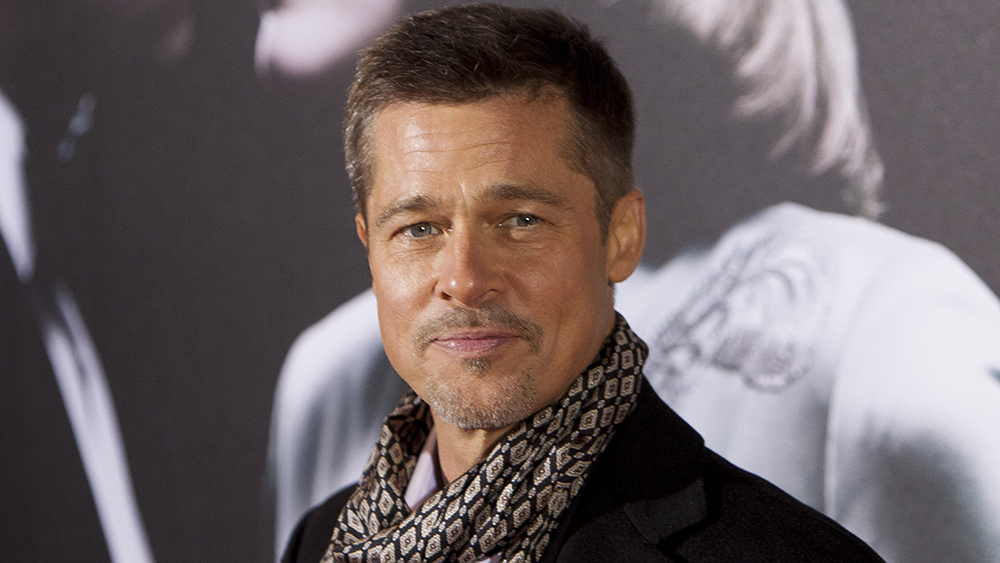Contributor and author Ottessa Moshfegh meets actor and producer Brad Pitt at his Hollywood Hills home in a new cover story for GQ magazine’s August issue. Throughout their conversations, Pitt is open and honest about his career’s future, the various changes he’s made to improve his health, and his feelings of loneliness. He also talks about his upcoming projects, which include the action comedy Bullet Train.
Pitt is a legendary leading man, Hollywood power broker, and possibly the greatest heartthrob of all time. However, he has recently appeared onscreen less frequently and has been more focused on his role as a film producer. He tells GQ that he’s trying to think about what’s next and what kind of path he wants to take in the final stages of a prolifically creative career.
“I consider myself on my last leg, this last semester or trimester,” he says. “What is this section gonna be? And how do I wanna design that?”
Part of that design includes his production company, Plan B Entertainment. This year, Plan B is putting out Women Talking – an adaptation of Miriam Toews’s novel about a group of Mennonite women who unite against their rapists – directed by Sarah Polley.
“It’s as profound a film as anything made this decade,” Pitt remarks.
Like all accomplished actors, he has become more picky about which films he will appear in. Pitt, on the other hand, is happy to lend his talents to an unusual blockbuster when the timing is right, especially if there’s a personal connection. Pitt will star in Bullet Train, an action comedy thriller directed by David Leitch, who previously worked as Pitt’s stunt double in Fight Club, Troy, and Mr. & Mrs. Smith. Pitt plays Ladybug, an assassin on a train from Tokyo to Kyoto who has recently recovered from burnout and is returning to his high-stakes job with a somewhat erroneous sense of confidence in his fitness for duty.
“You know, you do a month of therapy, you have one epiphany, and you think you’ve got it all figured out, and you’re never going to be forlorn ever again,” Pitt says of his character. “That was that. I got this, I’m good to go!”
Pitt also tells GQ about his mission to improve his health. He explains that he quit smoking during the pandemic after offering Moshfegh a nicotine mint. Although he initially attempted to reduce the amount of cigarettes he smoked, he realised that simply cutting back on cigarettes wasn’t going to suffice-he needed to quit completely.
“I don’t have that ability to do just one or two a day,” he says. “It’s not in my makeup. I’m all in. And I’m going to drive into the ground. I’ve lost my privileges.”
It’s only one of several radical changes he’s made to his health over the past few years. After Pitt’s ex-wife Angelina Jolie filed for divorce in 2016, he got sober and spent a year and a half attending Alcoholics Anonymous.
“I had a really cool men’s group here that was really private and selective, so it was safe,” he tells GQ. “Because I’d seen things of other people, like Philip Seymour Hoffman, who had been recorded while they were spilling their guts, and that’s just atrocious to me.”
Pitt has talked in the past about how he struggles to remember new people, to recognize faces, and he fears it’s led to a certain impression of him: that he’s aloof and self-absorbed. Moshfegh, however, finds him to be the opposite. Pitt is deeply committed to forging meaningful connections, to probing life’s existential quandaries, and hearing the personal stories of others.
“I always felt very alone in my life,” he explains, “alone growing up as a kid, alone even out here, and it’s really not till recently that I have had a greater embrace of my friends and family. What’s that line, it was either Rilke or Einstein, believe it or not, but it was something about when you can walk with the paradox, when you carry real pain and real joy simultaneously, this is maturity, this is growth.”
(Interview excerpts courtesy GQ India)
IANSlife
